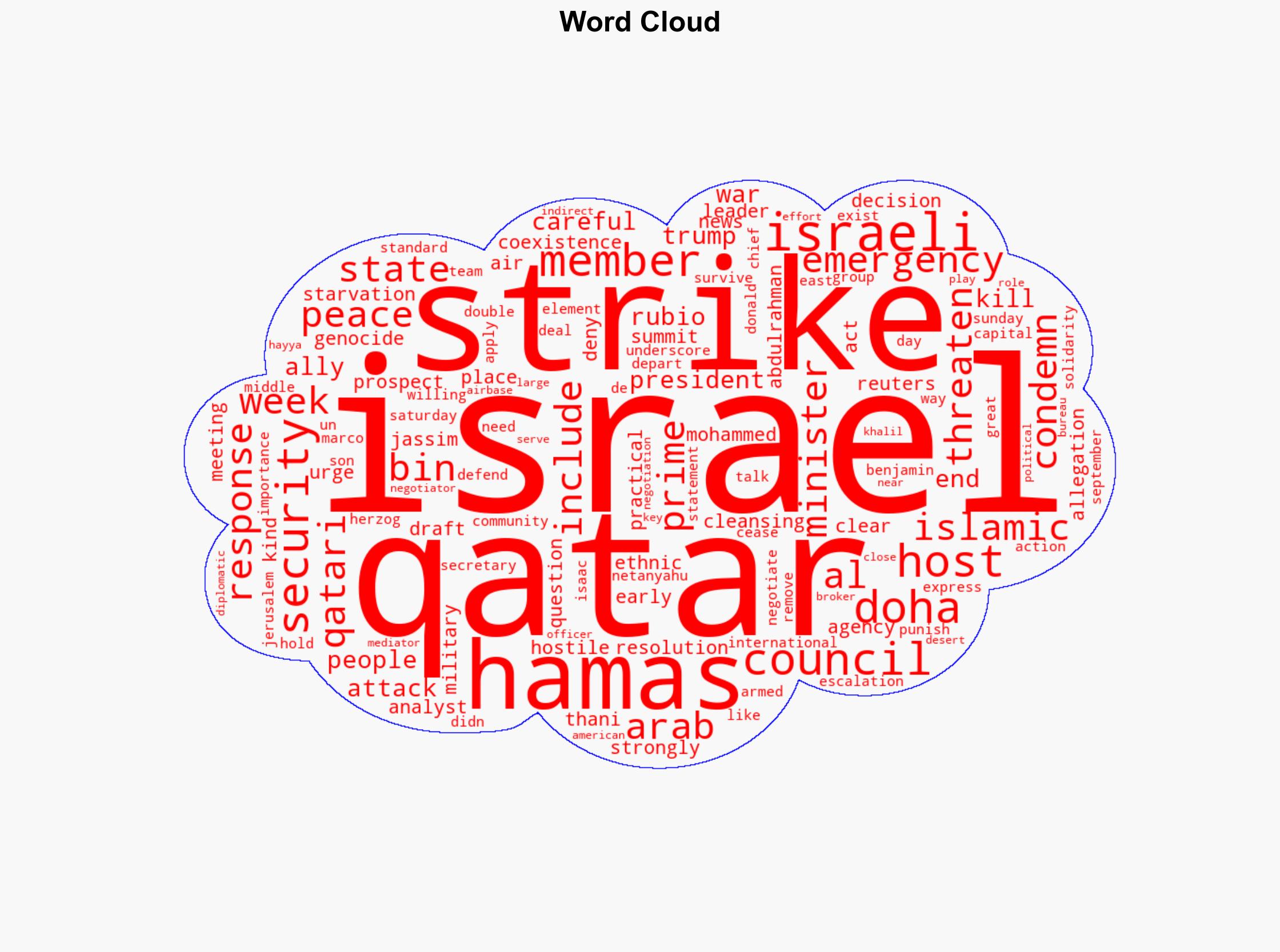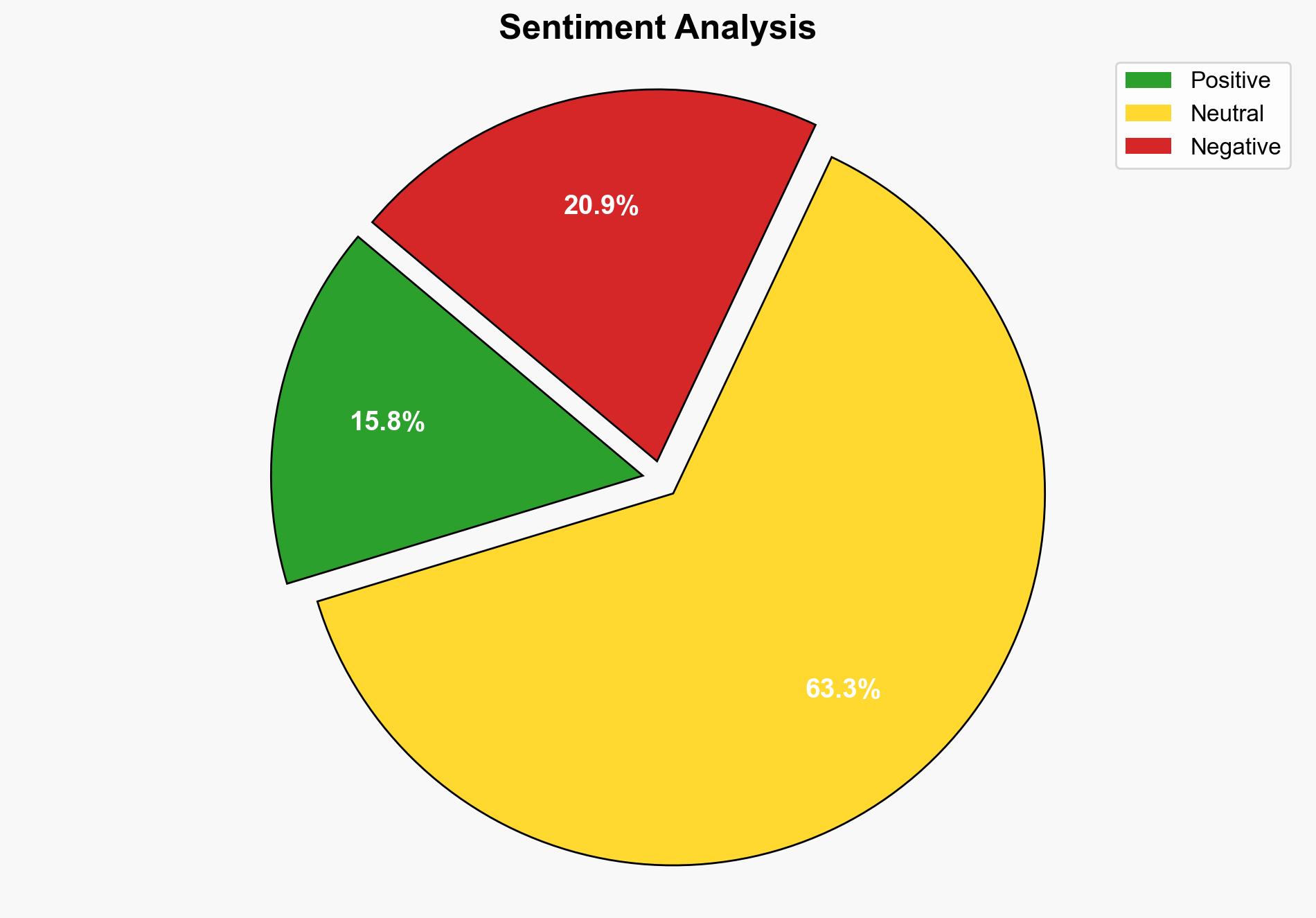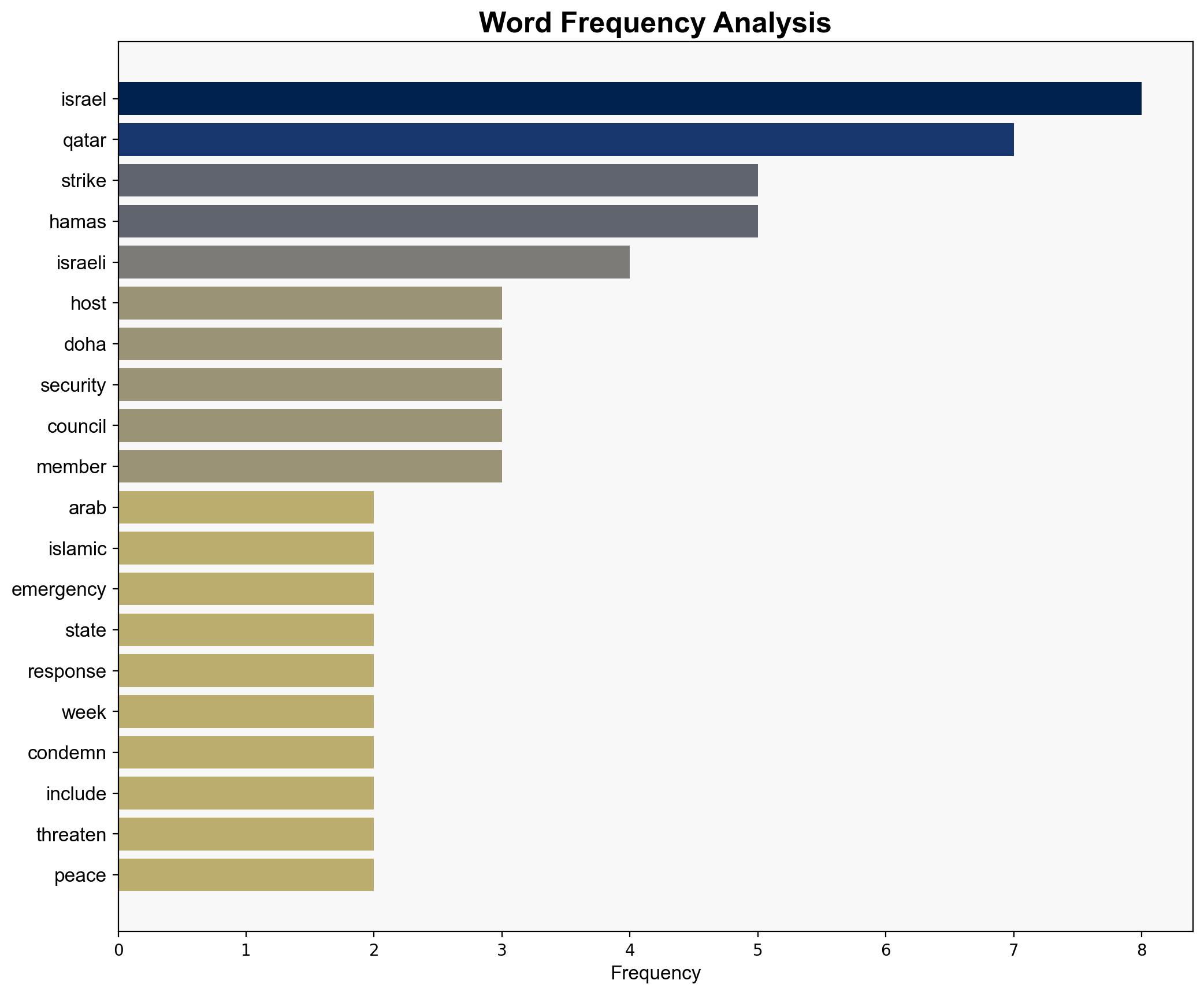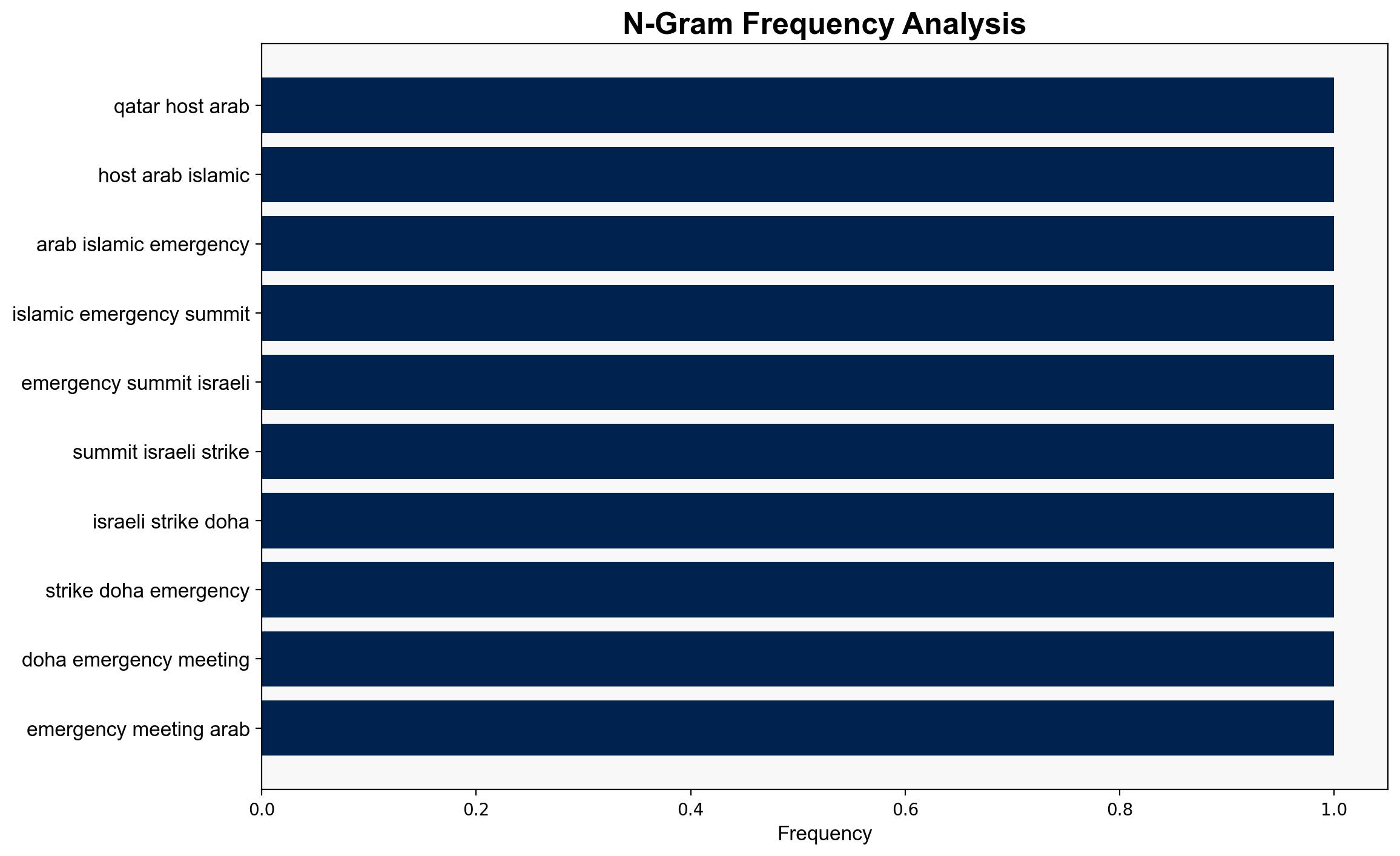Qatar hosts Arab-Islamic emergency summit over Israeli strike on Doha – BBC News
Published on: 2025-09-15
Intelligence Report: Qatar hosts Arab-Islamic emergency summit over Israeli strike on Doha – BBC News
1. BLUF (Bottom Line Up Front)
The most supported hypothesis is that the emergency summit in Qatar is a strategic move to consolidate regional support against Israel’s actions and to strengthen Qatar’s diplomatic influence in the Middle East. Confidence in this assessment is moderate due to the complexity of regional dynamics and conflicting narratives. Recommended action includes diplomatic engagement to de-escalate tensions and monitoring of regional alliances.
2. Competing Hypotheses
1. **Hypothesis A**: The emergency summit is primarily a diplomatic maneuver by Qatar to bolster its regional influence and position itself as a key mediator in Middle Eastern conflicts. This hypothesis is supported by Qatar’s history of hosting negotiations and its strategic alliances.
2. **Hypothesis B**: The summit is a genuine collective response by Arab and Islamic states to condemn and counter Israeli military actions, reflecting a unified stance against perceived aggression. This is supported by the strong language in the draft resolution and the involvement of multiple states.
Using ACH 2.0, Hypothesis A is better supported due to Qatar’s established role as a mediator and its vested interest in maintaining regional stability, which aligns with its hosting of a large American airbase.
3. Key Assumptions and Red Flags
– Assumption: Qatar’s primary motivation is diplomatic rather than military.
– Red Flag: The absence of detailed information on the specific outcomes or agreements from the summit raises questions about its effectiveness.
– Potential Bias: Confirmation bias may lead to overemphasizing Qatar’s diplomatic role while underestimating genuine regional security concerns.
– Inconsistent Data: Conflicting statements from international leaders about Qatar’s role and intentions.
4. Implications and Strategic Risks
– **Geopolitical Risks**: Increased polarization in the Middle East could lead to further instability and complicate peace negotiations.
– **Economic Risks**: Potential sanctions or economic repercussions if tensions escalate.
– **Cyber Risks**: Heightened cyber threats as regional actors may engage in cyber warfare.
– **Psychological Risks**: Escalating rhetoric could inflame public sentiment and lead to unrest.
5. Recommendations and Outlook
- Engage in diplomatic dialogue with key regional players to de-escalate tensions and promote peaceful resolutions.
- Monitor regional alliances and shifts in diplomatic stances to anticipate potential conflicts.
- Scenario Projections:
- Best Case: Successful mediation leads to a de-escalation of tensions and renewed peace talks.
- Worst Case: Escalation into broader regional conflict with significant economic and human costs.
- Most Likely: Continued diplomatic maneuvering with intermittent flare-ups of tension.
6. Key Individuals and Entities
– Mohammed bin Abdulrahman bin Jassim Al Thani
– Donald Trump
– Marco Rubio
– Benjamin Netanyahu
– Isaac Herzog
– Khalil al-Hayya
7. Thematic Tags
national security threats, cybersecurity, counter-terrorism, regional focus





